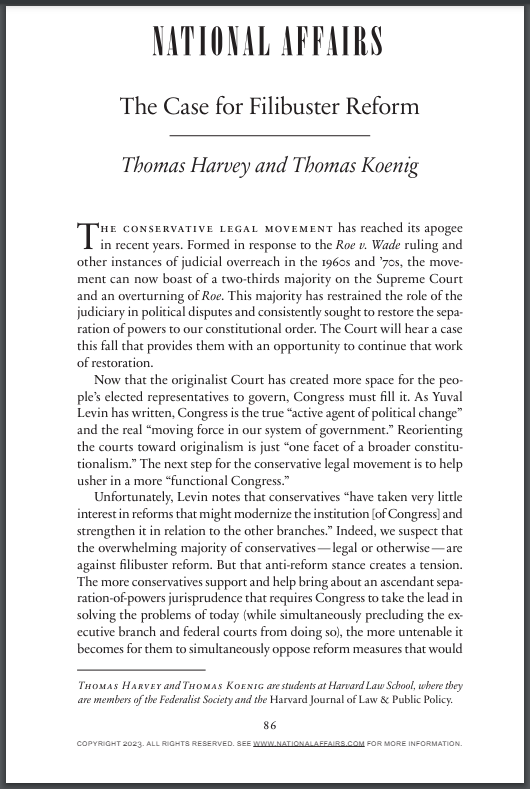
Thomas Harvey and Thomas Koenig, “The Case for Filibuster Reform,” National Affairs, 2023.
The authors write:
“The more conservatives support and help bring about an ascendant separation-of-powers jurisprudence that requires Congress to take the lead in solving the problems of today (while simultaneously precluding the executive branch and federal courts from doing so), the more untenable it becomes for them to simultaneously oppose reform measures that would empower lawmakers to rise to the occasion. Compelling Congress to shoulder the burden of its constitutional duty as the prime mover behind political solutions is a worthy goal. But failing to ensure that Congress can bear that burden undermines this pursuit.”
The authors then argue for filibuster reform as a means to improving Congress’s capacity to enact legislation. They propose a second, majority-rules track, wherein a Senate majority could pass a bill, but that bill would not go to the House. It would rest in a liminal state, and then the next Congress could take it up and pass it on a majority vote.
Stay in the know about our news and events.